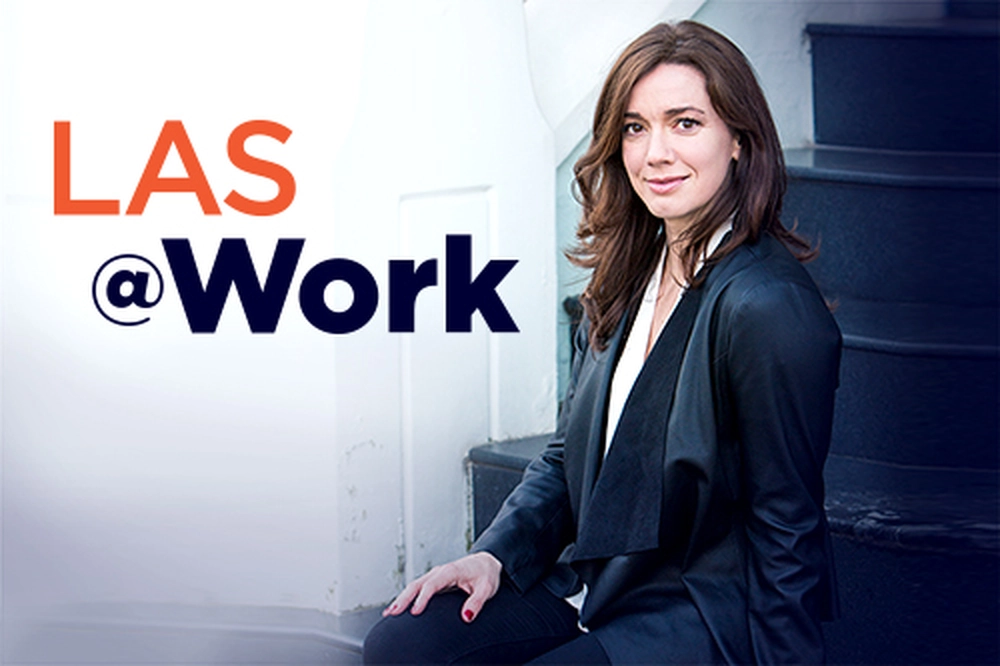
Illinois alumna Stephanie Hare (BA, ‘97, French) believes the most interesting aspect of her work is the opportunity to learn every day. As an independent researcher, broadcaster, and author, she may spend her day diving deep into research on technology ethics or making media appearances as an expert source; however, in accomplishing either task, Hare has found non-stop learning to be the connection in her day-to-day.
In her first book released earlier this year, “Technology Is Not Neutral: A Short Guide to Technology Ethics,” Hare applies expertise in history, technology, and political science to consider the ethical problems of new technologies that are intended to make life easier.
Place of residence: London, England
Family: A trans-Atlantic clan of relatives, friends, and pets
Please briefly describe a typical workday. Also, what is an example of the most interesting aspect of your job?
I wake early and compose a rough plan for the day while caffeinating and checking the news. However, it can’t be too rigid because my day can, and often does, change in an instant: I might be invited at short notice to interview with the media or need to jump on a call with a new or existing client, but other times I will throw the plan out the window because the writing is going well. Daily exercise is core to my work as I often think while walking or swimming, although I also use exercise to bust stress and switch off when needed. Much of my day is spent in silence reading, writing, and thinking, in contrast to another chunk that is spent on outward-facing activities such as interacting with clients or colleagues, giving or attending public talks, or conducting research. The email and administrative tasks that come from being self-employed are relentless, so I triage regularly to deal with anything urgent and batch the rest to blast through later. The great challenge is not so much managing my time or workload as managing my energy: some of my work can be done in the course of a day but other projects take months or, in the case of book writing, years to complete.
What was your first job following college?
Business manager’s assistant at NatWest Bank’s Business Centre in Wiltshire, England.
How did you land your first job?
I had just moved from France to England and a temping agency helped me to find a job working with a county bank that focused on supporting farmers and small- to medium-sized enterprises.
In hindsight, what about college best prepared you for your life and career?
An open-mindedness towards approaching any subject, regardless of whether it is related to my specialism or strengths.
How did your major prepare you for your career?
Thanks to UIUC’s excellent professors and the junior year abroad program at the Sorbonne in Paris, I graduated with strong language skills and a solid base of cultural knowledge that have allowed me to work well in France and with French speakers. This didn’t just prepare me for my career; it changed my life.
Describe your proudest achievement:
Personal life: staying so close to my family in Illinois despite all these years of being separated by long distance and different time zones. Professional life: writing and publishing my first book, “Technology Is Not Neutral: A Short Guide to Technology Ethics,” during a pandemic.
Kayleigh Rahn
Editor's note: This LAS@Work profile is part of a series that features College of LAS alumni and their careers. Visit here to read more.